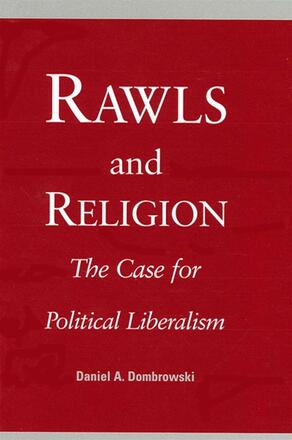
Rawls and Religion
The Case for Political Liberalism
Alternative formats available from:
Employs the political philosophy of John Rawls to address controversies involving politics and religion.
Description
2001 CHOICE Outstanding Academic Title
Despite John Rawls's stature as the most influential political philosopher of the twentieth century, his thoughts on religion have not been sufficiently studied. While it is generally assumed that Rawls is more interested in topics other than the relationship between politics and religion, author Daniel A. Dombrowski argues in this book that this assumption is incorrect. He shows that Rawls is interested in the relationship between politics and religion and that the relationship between the two is at the core of the problem that liberalism has for centuries meant to solve. Rawls and Religion utilizes Rawls's thought to examine, among other controversial issues, abortion, the phenomenon of fundamentalism as a growth industry, and the perceived decline of secular culture.
Daniel A. Dombrowski is Professor of Philosophy at Seattle University. He is the author of several books including Kazantzakis and God, also published by SUNY Press, and with Robert Deltete, A Brief, Liberal, Catholic Defense of Abortion.
Reviews
"Dombrowski shows an impressive grasp of not only Rawls's work, but of what is at stake in the relation between religion and politics as well. He is accurate and thorough with regard to the main ideas and arguments in both Theory of Justice and Political Liberalism. Important issues such as race, gender, abortion, animal welfare, to name a few, are given thoughtful and illuminating attention in a way that logically follows from Rawls's version of liberalism. " — Timothy Menta, St. Francis University
"This book presents the most comprehensive treatment I have read on Rawls's political liberalism and religious reason and the literature critical of Rawls on this topic. " — Harlan Beckley, Washington and Lee University